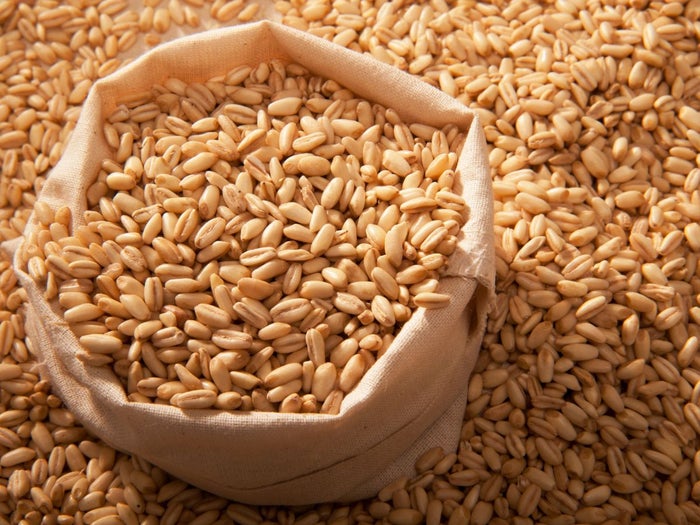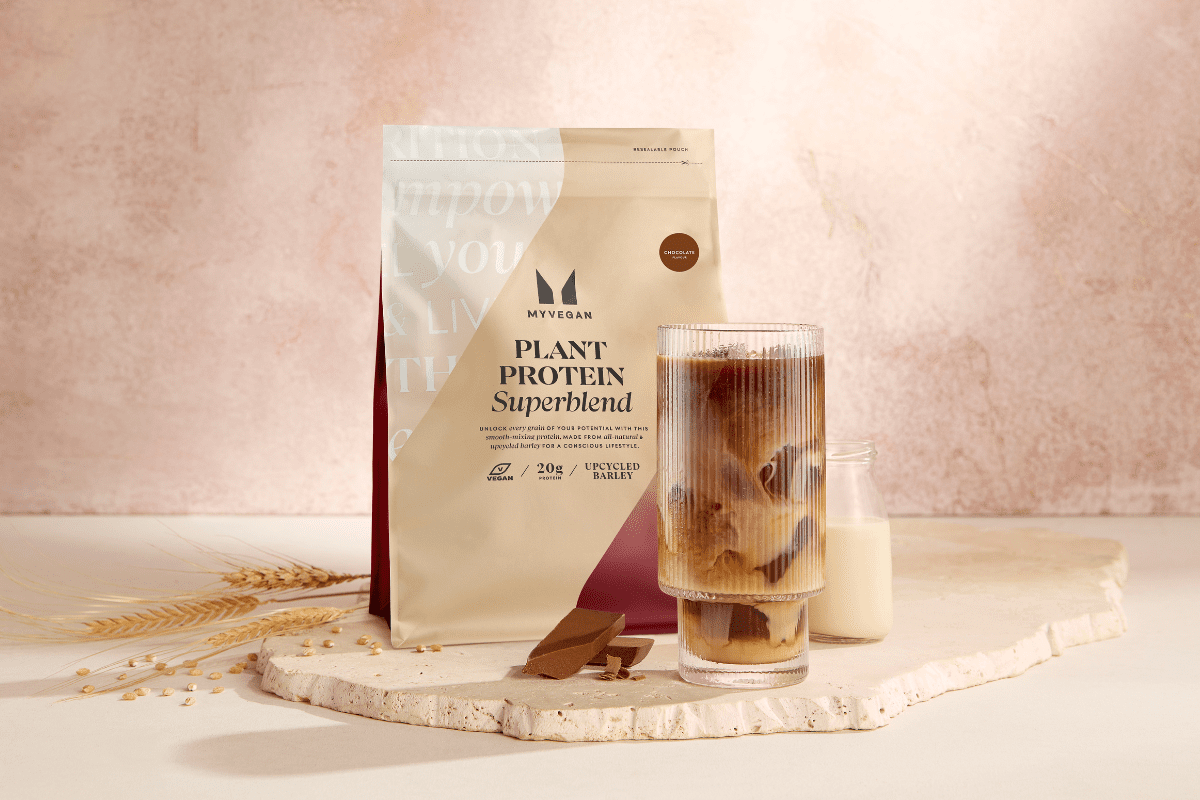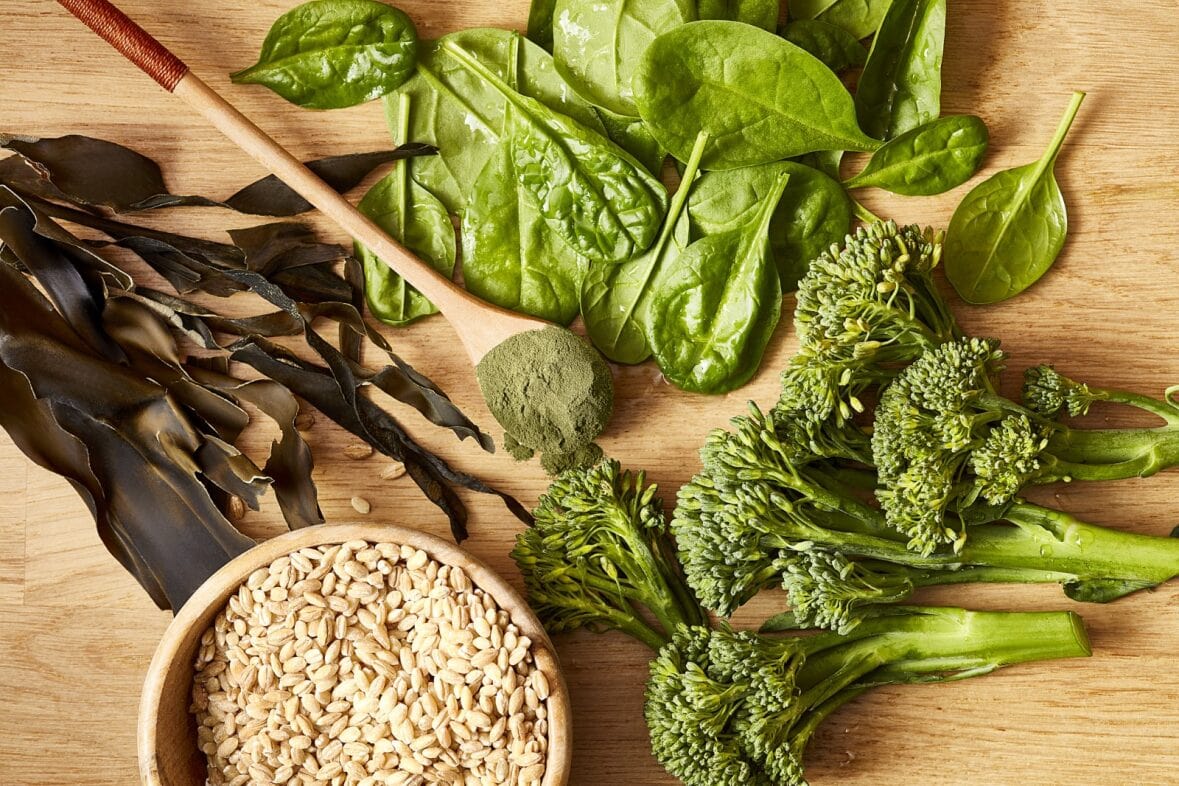
Barley has been farmed for millennia, but recently it's been gaining attention for its numerous health perks. From aiding digestion to supporting heart health and more, barley's adaptability and nutritional richness make it a great addition to a healthy diet.
In this article, we’ll delve into the benefits of barley, and the top reasons why including barley in your meals can support your health.

What is barley?
Barley has been farmed for thousands of years by many different cultures, including the ancient Egyptians and Sumerians. Because of the plant’s resilience and nutritional richness, it’s remained a versatile and widespread staple in modern diets.
Barley is a powerhouse of essential vitamins, minerals, fibre, and antioxidants, offering many potential health benefits.
Its complex carbohydrates provide sustained energy and satiety, contributing to weight management and blood glucose regulation. Meanwhile, minerals like manganese, selenium, phosphorus, and copper support bone health, metabolism, and immune function.
What is barley used for?
Barley serves as a fundamental ingredient in various dishes worldwide, ranging from soups and stews to salads and baked treats. Its hearty texture and nutty flavour enhance the taste and nutritional value of meals, making it an excellent choice for both savoury and sweet recipes.
Barley is also a key ingredient in many drinks, including beer and whiskey, and as a flavour in squash drinks.
In 2023, an innovative new process made it possible to extract high-quality protein from barley leftover from beer brewing. This upcycled ingredient is the foundation of Plant Protein Superblend – a silky smooth protein drink that supports your healthy balanced diet.
Find out more about upcycling and Superblend in this explainer:
Top 9 barley benefits
Here are the top health benefits of barley, exploring its impact on wellbeing, from supporting heart health to aiding digestion and beyond.
1. Heart health
The fibre, antioxidants, and minerals in barley support cardiovascular wellbeing by helping to manage your cholesterol levels and blood pressure. (1)
2. Gut health
Barley's mix of both soluble and insoluble fibres fosters a healthy digestive system by regulating bowel movements and nurturing a balanced gut microbiome. They also keep you feeling full for longer and assist in weight management (2).
3. Blood sugar control
The unique combination of low glycaemic index and fibre content in barley helps stabilise blood sugar levels, offering a protective effect against insulin resistance (3).

4. Support weight management
Barley's satiating properties, fuelled by its fibre and protein content, can help with weight management and keeping you fuller for longer (4).
5. Bone health
Barley's mineral-rich profile, encompassing essential nutrients like calcium, magnesium, and phosphorus, increases bone density and resilience. These minerals combine to reduce the risk of fractures, protecting long-term bone health (5).
6. Immune system support
Barley is high in vitamins A, C, and E, as well as zinc and selenium, which all help strengthen the immune system (6).
7. Boost energy
Complex carbohydrates like those found in barley serve as a sustained energy source, keeping energy levels stable throughout the day (7).
8. Skin health
Barley's antioxidant-rich profile, featuring vitamin E, selenium, and phenolic compounds, protects skin against external factors and supports long-term skin health.8
9. Brain health
Other nutrients found in barley can support long-term brain health (9). These include vitamins B6 and B12, folate, iron, and omega-3 fatty acids.
Talk to your nutritionist
Myvegan are not making any medical claims in this article. If you are concerned about a medical concern or looking to implement barley into your diet, speak with your doctor or nutritionist.
Take home message
So, now you know all about the wonders of barley and its benefits. From boosting immune health and promoting digestion to stabilizing blood sugar and supporting weight management, barley is a great addition to any balanced diet.
FAQs
Is barley a superfood?
Barley possesses a wealth of nutrients and health-promoting properties, leading many to consider it a valuable addition to a healthy diet. Its impressive nutritional profile includes fibre, vitamins, minerals, and antioxidants, which contribute to various health benefits.
What does barley do for your body?
Barley offers numerous health benefits. Its rich nutritional composition supports digestive health, heart health, blood sugar control, weight management and immune function. Incorporating barley into your diet can contribute to improved wellbeing and overall health.
Is drinking barley every day good for you?
Enjoying barley regularly as part of a balanced diet can offer numerous benefits. Its nutrient-rich profile supports overall wellbeing, including heart health, digestion, blood sugar control, and immune function. However, moderation is key, and it's essential to consider individual dietary needs and preferences.
Who should not take barley?
Individuals with specific dietary restrictions or allergies to barley should avoid its consumption. Additionally, those with certain medical conditions or concerns should consult with a healthcare professional before incorporating barley into their diet to ensure it aligns with their health needs and goals.
- Yang, Jun, et al. “Effects of barley intake on glucose tolerance, lipid metabolism, and bowel function in women.” Nutrition 18.5 (2002): 393-397.
- Hong, Young Sun, et al. “Barley sprout extract attenuates alcoholic fatty liver injury in mice by reducing inflammatory response.” Nutrients 9.6 (2017): 618.
- Katcher, Heather I., et al. “The effects of a whole grain–enriched hypocaloric diet on cardiovascular disease risk factors in men and women with metabolic syndrome.” The American journal of clinical nutrition 87.1 (2008): 79-90.
- Andersson, Roger, et al. “Whole‐grain foods do not affect insulin sensitivity or markers of lipid peroxidation and inflammation in healthy, moderately overweight subjects.” The Journal of nutrition 137.6 (2007): 1401-1407.
- Tucker, Katherine L., et al. “Potassium, magnesium, and fruit and vegetable intakes are associated with greater bone mineral density in elderly men and women.” The American journal of clinical nutrition 69.4 (1999): 727-736.
- Watzl, Bernhard, et al. “The effect of dietary β‐glucan on the response of monocytes to bacterial stimulation in healthy elderly men.” The American journal of clinical nutrition 70.4 (1999): 421-425.
- Yang, J., Kroger, S. M., Shi, Z., et al. (2002). Effects of Barley Intake on Glucose Tolerance, Lipid Metabolism, and Bowel Function in Women. Nutrition, 18(5), 393-397
- Zaid, Adnan A., and Mohammad A. Al‐Ramahi. “Effect of whole barley flour addition on rheological properties and texture of wheat dough and bread quality.” Journal of food process engineering 38.5 (2015): 502-508.
- Du, H., Sun-Waterhouse, D., Li, Y., et al. (2019). Dietary Barley β-Glucans Increase Brain Retinoids and Enhance Cognition in Aged Mice. Journal of Agricultural and Food Chemistry, 67(31), 8713-8724.











